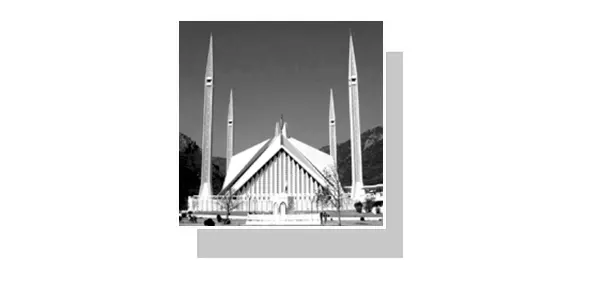ISLAMIC spirituality, or Ruhaniat, is a creed that guides a seeker from Farsh (the physical world) to Arsh (a divine status). The soul, known as Nafs, plays a pivotal role in this spiritual journey. Imagine a seeker standing on one side of a barren land, with a river on the far side, and beyond that river, a staircase. Metaphysically, the barren land, the river, and the ladder represent the journey of the soul on Farsh. To access Arsh, the seeker must climb the staircase, which symbolizes spiritual ascension. To do so, he must cross the barren land, sail the river, and reach the ground where the staircase stands.
There are certain conditions that must be met to successfully navigate this journey. First, the seeker must make the barren land fertile before reaching the river. If the land symbolizes the soul, its fertility represents the soul’s refinement. At this stage, the soul is free in its actions. The Quran states: “Each soul is responsible for its actions.” (Quran 6:164). To fulfil its responsibilities, the soul is provided with knowledge of right and wrong. The Quran says: “God has inspired the soul with the knowledge of what is right and wrong” (Quran 91:9).
The Quran further clarifies this duality by saying: “And point out to him the two clear ways (of good and evil)” (Quran 90:10). Speaking of free will, the Quran says: “Indeed, Allah does not change a people’s lot, unless they change what is in their souls.” (Quran 13:11). With this guidance, the seeker is allowed to use his free will and choose between good and evil. At the same time, he is warned that he will ultimately be held accountable for his deeds. This concept is referred to in Islam as Saza (punishment) and Jaza (reward). The Quran states: “Thereafter, every soul will be paid in full for what it has earned, and they will not be wronged” (Quran 2:81).
The freedom of the soul places the seeker in a state of limbo between the negative aspects of evil and the positive aspects of goodness. Typically, the negative aspects take precedence, as physical pleasures are more alluring. In this process, the seeker may associate with corrupt people and develop traits like greed, jealousy, hatred, and rage—all tied to egoism. He becomes entangled in a broad range of emotions, from fleeting joy to prolonged sadness. The brief moments of joy come from things like vulgarity, lust, and carnality, but once the euphoria fades, he falls into long periods of grief, misery, and depression. He begins to live in an environment of discontent, despair, and fear.In this state of mind, he may turn to drugs to lift his moods. While these substances provide temporary euphoria, they lead to addiction. As he becomes dependent on them, the cycle continues—short bursts of joy followed by long stretches of depression—further deteriorating his mental and physical well-being. Eventually, he may hit rock bottom, losing the respect of his friends and family, failing to fertilize the baren land, and never reaching the river.
Alternatively, metaphorically speaking, the seeker can make the barren land fertile by refining his soul through self-awakening, self-accusation, self-rapprochement, self-realization, and ultimately self-reformation. This brings him to the bank of the river. But how does he achieve all this? Both science and religion offer tools—self-hypnosis and Zikr, respectively. These two methods can transform a person’s character, with the key difference being that hypnosis can have both positive and negative effects, while Zikr, grounded in the Quran, can only have a positive influence.Zikr involves the continuous repetition of sacred words, which empties the mind of distractions, facilitating spiritual transformation. Initially, it is uttered aloud, but as it becomes more effective, it can be performed silently. The Quran says: “Do Zikr of your Lord inwardly, with humility and reverence, and in a moderate tone of voice, both morning and evening. And do not be of the heedless” (Quran 7:205).
Both Zikr and self-hypnosis are examples of self-struggle in the refinement of the soul, akin to making the metaphorical barren land fertile. Through these practices, the seeker learns how to discard negativity—greed, jealousy, hatred, and despair—and embrace positivity—humility, honesty, patience, and gratitude. In this way, he moves from being a flawed individual to a reformed one. He learns to use his intellect and make decisions, taking responsibility for his actions.At this phase of the soul’s journey, Allah does not interfere in his decisions and actions. He informs the seeker that if he commits evil, he will face the consequences and be punished (Saza) in this world or the next, or both. If he does good, he will be rewarded (Jaza). The seeker must strive to control his soul, for if he does not, he will wander aimlessly in the barren land and never progress toward the river.
A renowned eighth-century hadith compiler and spiritual scholar Sufyan al-Thawri said, “I have never dealt with anything more difficult than my own soul (Nafs); it is one moment with me, and one moment against me.” Once the seeker controls and reforms his soul through self-struggle, without relying on divine intervention, he enters a state of perpetual contentment. This is akin to ploughing the barren land, making it fertile, and reaching the riverbank. Now, he is ready to cross the river and continue, on the second part of the soul’s journey.
—The writer is contributing columnist.
(turi555@hotmail.com)










